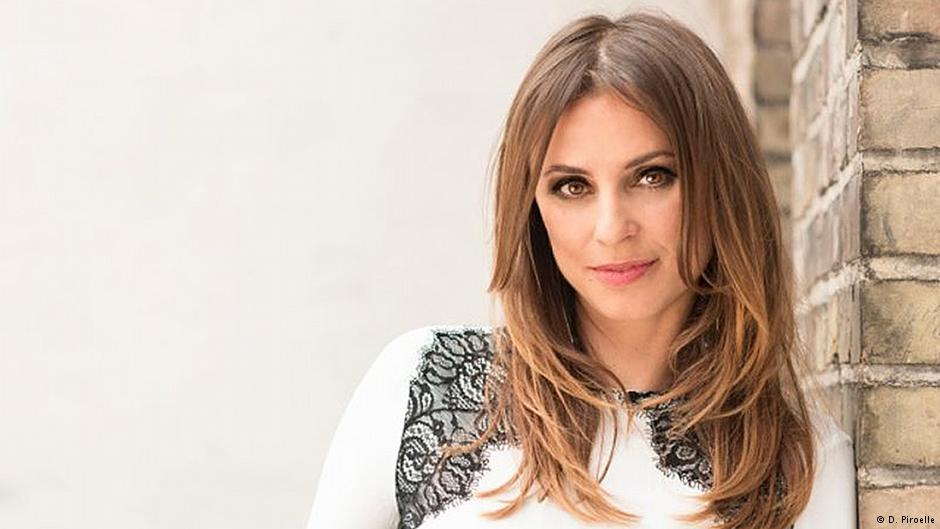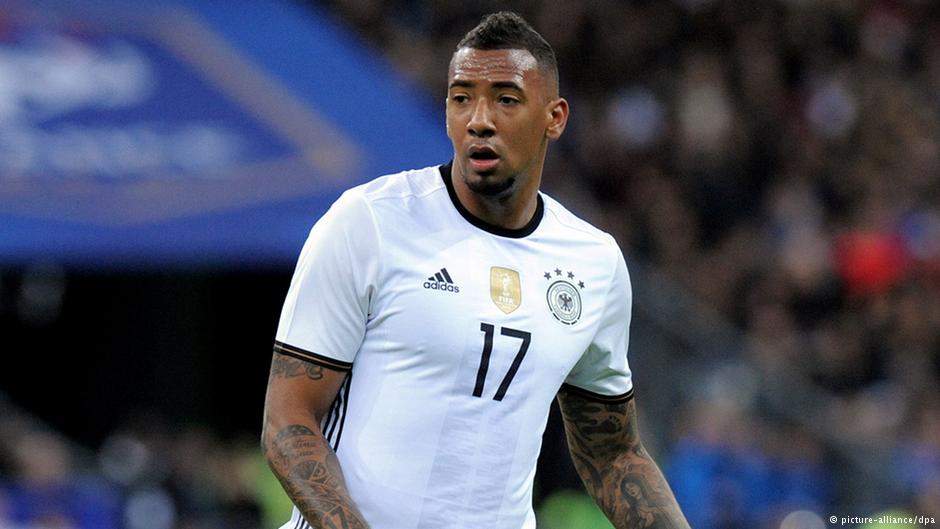″Cultural identity is not absolute″

Ms Marinic, what is German in today's Germany?
Jagoda Marinic: What's German today is definitely different from what was German 60 years ago, when my parents came to Germany as guest workers. Currently we are seeing here – and across Europe – movements like PEGIDA that prefer a very narrow national structure. They wish that an identity could stay the same forever, that people could immigrate to a country and not change anything. And with the question "what's German in Germany" and taking the "Made in Germany" brand into account, I just want to make clear that this country has already changed and its identity has evolved over the past 60 years. And that has brought Germany many positive things, including the "Made in Germany" brand that we've built up together, though it unfortunately seems to getting an increasingly negative reputation.
At the European Championship in France, there are a number of players on the German national team with international backgrounds. For some right-wing populists like Alexander Gauland from the right-wing AfD party, that's difficult to accept. He's said the national team "isn't German" and offended player Jerome Boateng by asserting that many Germans "would not want to live next to him." Is today's German more Gauland or more Boateng?
Marinic: Perhaps Germany is struggling with that a bit, but Gauland does seem like he's been beamed in from a bygone era. Years ago, I wrote an article called, "Was Mesut Ozil's father also a professional soccer player?" in which I pointed out that the nationalities of people's parents are not necessarily decisive when it comes to what they can contribute to society. Still, I find Gauland's rhetoric very dangerous because he's questioning everything that's become normality. In the past decade, fans cheered and didn't care who shot the goal – it was the German national team. And suddenly he's bringing up things that were cleared up a long time ago.

PEGIDA, the right-wing political party AfD, France's right-wing party Front National… who's to blame for the rise of the far-right in Europe?
Marinic: Above all, it's our inability, as a continent with over 500 million people, to deal with the world's problems. And I think Europe has been asleep for too long. Europe was caught up in a liberal dream and didn't necessarily understand how important its role in global politics is. I think Europe has been politically inactive for too long and that's something some groups have taken advantage of to build up their structures. The right-wing movement has a strong network across Europe and they are working together toward dangerous changes.
To what extent is politics itself to blame for the shift to the right? From Brexit and the euro crisis to the refugee influx, we've faced a number of problems in recent years and the political elite sometimes seem disoriented and lacking courage.
Marinic: To some extent, politics does bear responsibility when it comes to the rise of the far-right. In Germany, it was said for years that we are not a country of immigrants. The reality was ignored, although 20 million people were allowed to come here, be born here and live here. And politics has been used to calm people down. The people were told that nothing would change and that the world would stay as it is. And then, four or five years ago, politicians noticed that the world really was changing and that we need these people to secure our standard of living.
Has Chancellor Angela Merkel done a good job or has she alienated people?
Marinic: Angela Merkel was a shining light for a while. It seemed like she was a European who would show Europe where to go. But she didn't stay a shining light because, in my opinion, she looked back too much. She wanted to lead and was constantly checking that everyone was with her – but only a few were. She didn't offer enough. She hasn't actually said how she wants to solve things. She's emphasised that we have to be humane and not let people die at our doorstep. But at the same time, she hasn't said how she wants to help her country deal with the refugee situation. As soon as a leader expresses doubts or doesn't bring credibility, it gets hard for people to follow. On the other hand, she has reminded us of our values and we can't forget that in the current situation.
Your parents come from abroad. To what extent has that influenced your writing?
Marinic: It's simple: You write what you see. Or the inspiration you get from what you see. There are fewer and fewer kids that live in an allegedly homogeneous world. Children today are usually confronted with two or three cultures. I learned from the very beginning how relative culture is and how it changes from person to person and is lived out differently in different countries. Of course there were Croats in the diaspora that lived values other than those of my parents.

And my parents definitely had a different way of living as Germans, though they nevertheless had many values that were similar to those of the Germans. You learn that identity is something that constructs itself, that people make – it's not absolute truth. You become a critical person that asks questions because you see that the things you come across are not set in stone. And I think that has broadened my horizons and made it possible for me to experience identity as fluid. It's something I can change all the time and surprise myself with. This attitude flows into my books and my political texts.
Does the concept of "home" play a role? Where do you feel at home?
Marinic: Of course home has less to do with location. I can't really connect with the concept of home. I don't need a lot of land under my feet or a house or anything. But I feel at home in the world. I sense responsibility for this world. And I think that living between multiple cultures is enriching – even though that's been said a thousand times.
Who are you rooting for at the Euro Cup? Croatia or Germany?
Marinic: I'm not sure yet. It depends who I like better. But it doesn't necessarily have to be Germany or Croatia. I also like Italy.
Interview conducted by Srecko Matic
© Deutsche Welle 2016
